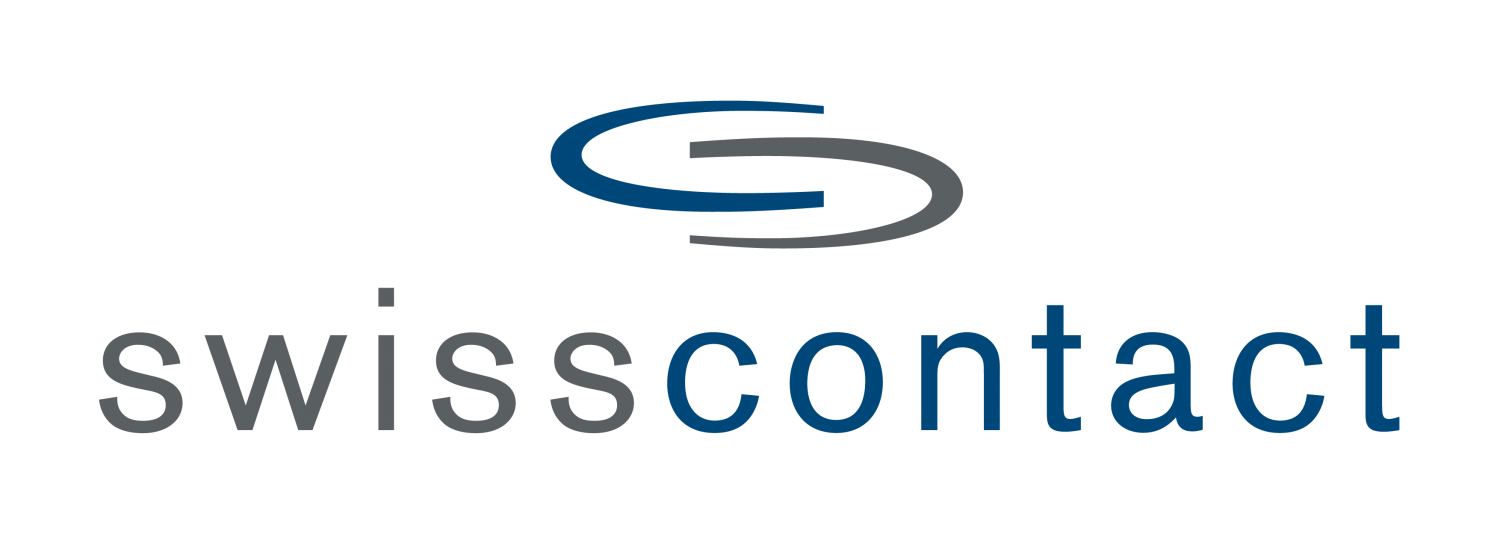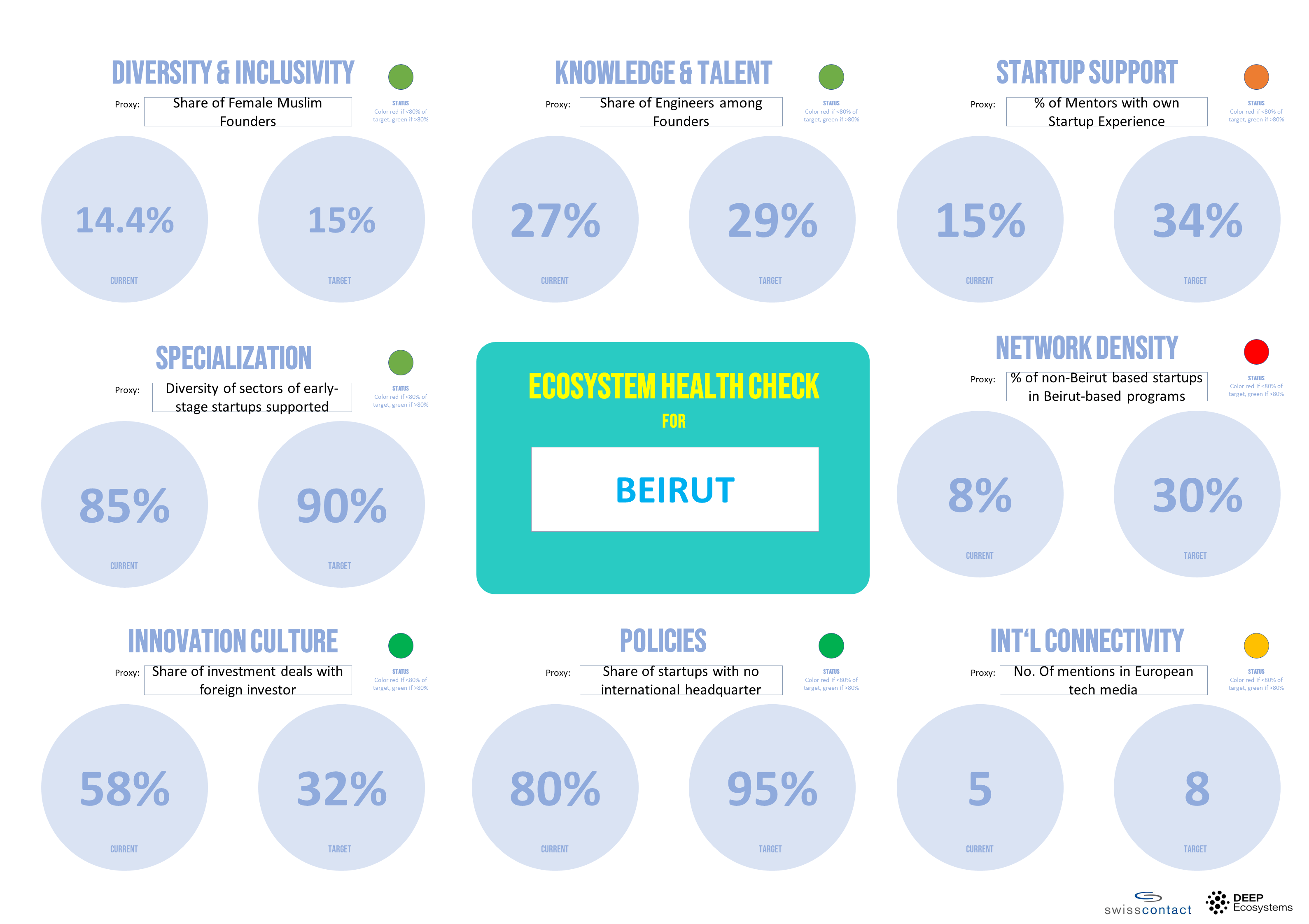Konrad Adenauer Stiftung, Swisscontact, and DEEP Ecosystems present the results of an Ecosystem Health Check on the startup scene in Lebanon's capital
Konrad Adenauer Stiftung, Swisscontact and DEEP Ecosystems have partnered up to execute an Ecosystem Health Check for the startup ecosystem in the capital of Lebanon. Since October 2019 and accelerated by the horrific explosion in the Beirut harbor in 2020, the country is experiencing an economic crisis with high inflation, frequent power outages, and economic restrictions like capital controls. Despite these hardships, Beirut has maintained an impressive level of activity in its startup scene, which always had been a shining star in Western Asia’s business landscape.
An open tool to empower local ecosystem builders around the world
The Ecosystem Health Check has been developed by Swisscontact and DEEP as a tool to monitor the performance of an ecosystem based on locally adapted indicators.
The framework allows the local community to agree on the most important indicators across 8 pre-defined metrics. These metrics cover everything from talent availability, diversity, startup support programs, network density and community as well as investments and specialization, innovation culture, policies, and international connectivity.
Understand Your Ecosystem
Swisscontact and DEEP Ecosystems have developed the Ecosystem Health Check. It’s a free and self-serving toolkit to empower startup hubs around the world to measure the health of their ecosystems.
Join our global webinars & learn how to use it!
The partners used the Ecosystem Health Check toolkit developed by Swisscontact and DEEP Ecosystems to validate some of their hypothesis of the effects of the crisis. The goal was also to develop a set of indicators to guide and measure the impact of interventions and policies aimed to support the entrepreneurs on the ground.
Among the eight categories we analyzed were for example the level of diversity of the startup scene, it’s openness to foreign investments, the quality of startup support, and the density of networks for entrepreneurs.
People collaborating irrespective of race, political orientation, gender or religion
A bright example of inclusivity and diversity
Nour Alwan of the Konrad Adenauer Stiftung office in Beirut sees a few strong points of Lebanese startups confirmed: “The startup community is a bright example of inclusivity and diversity. We see people collaborating irrespective of their race, political orientation, gender or religion.” Also, the level of tech talent entering the startup world to build high-tech startups is relatively high with 27% of founders being engineers. The startup support system offers programs for a wide variety of sectors.
One particular fear of the ecosystem supporters, however, wasn’t confirmed: The access to international investors did not drop significantly due to the crisis. In contrast, the share of investments with participation of foreign investors even increased to 58%.
Turning the crisis into an opportunity
It seems to be more of a problem to find local investors nowadays, as the survey “Braving the Storm: Safeguarding the Lebanese Innovation Economy” by Konrad Adenauer Stiftung and Arabnet shows.
The critical points we identified center around the deteriorating quality of early-stage startup support, which was fueled by the closure or downsizing of accelerator programs.
Further, the connectivity of Lebanese startups outside of Beirut with the support structures of the capital are underdeveloped. And despite activities of many European donor organizations inside the country, no significant visibility of the Lebanese tech ecosystem could be built in Europe yet.
Overall, the results prove the resilience of the entrepreneurial scene in Beirut. The entrepreneurial community always finds ways to overcome adversities and turn the crisis into an opportunity. However, more needs to be done to stabilize local support and international connectivity to help founders. Today, there has not yet taken place a large exodus of startups from Lebanon due to the crisis, but it could come if local conditions are not improved continuously.




